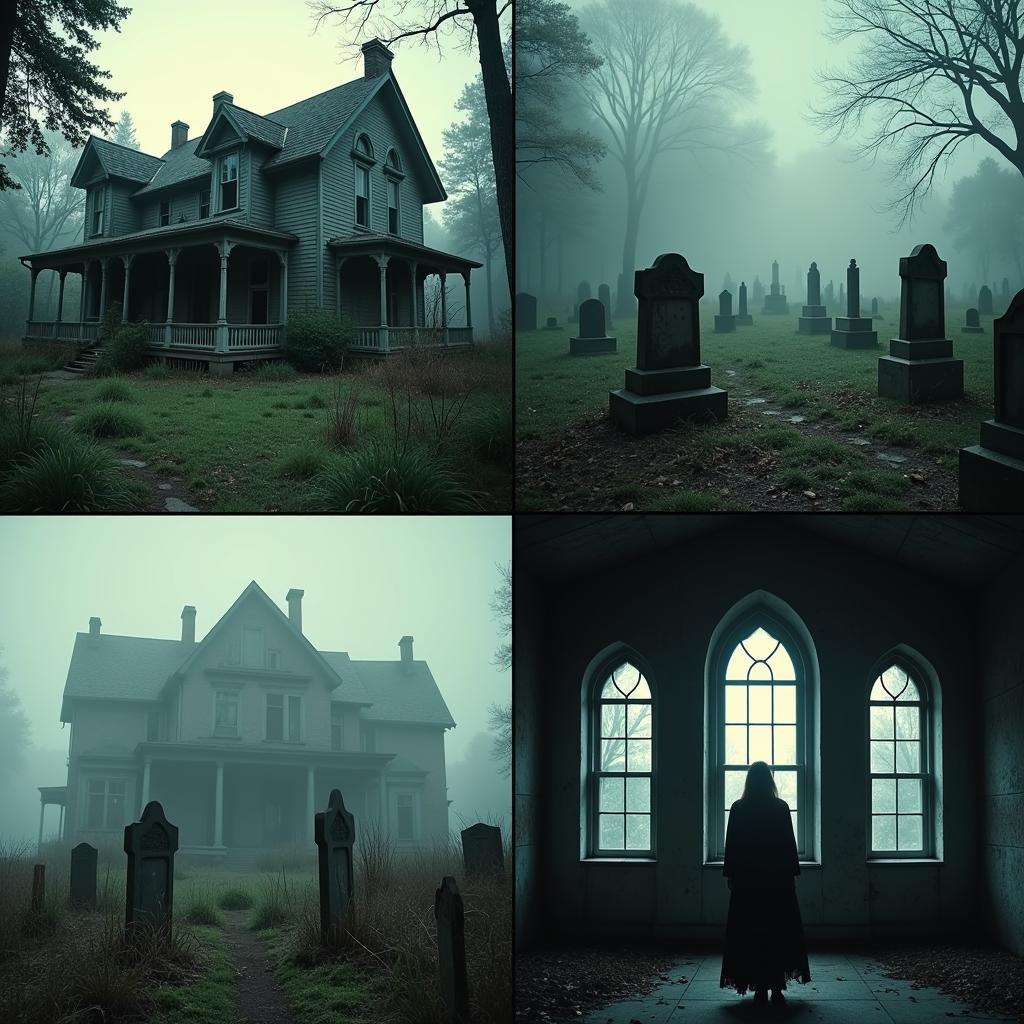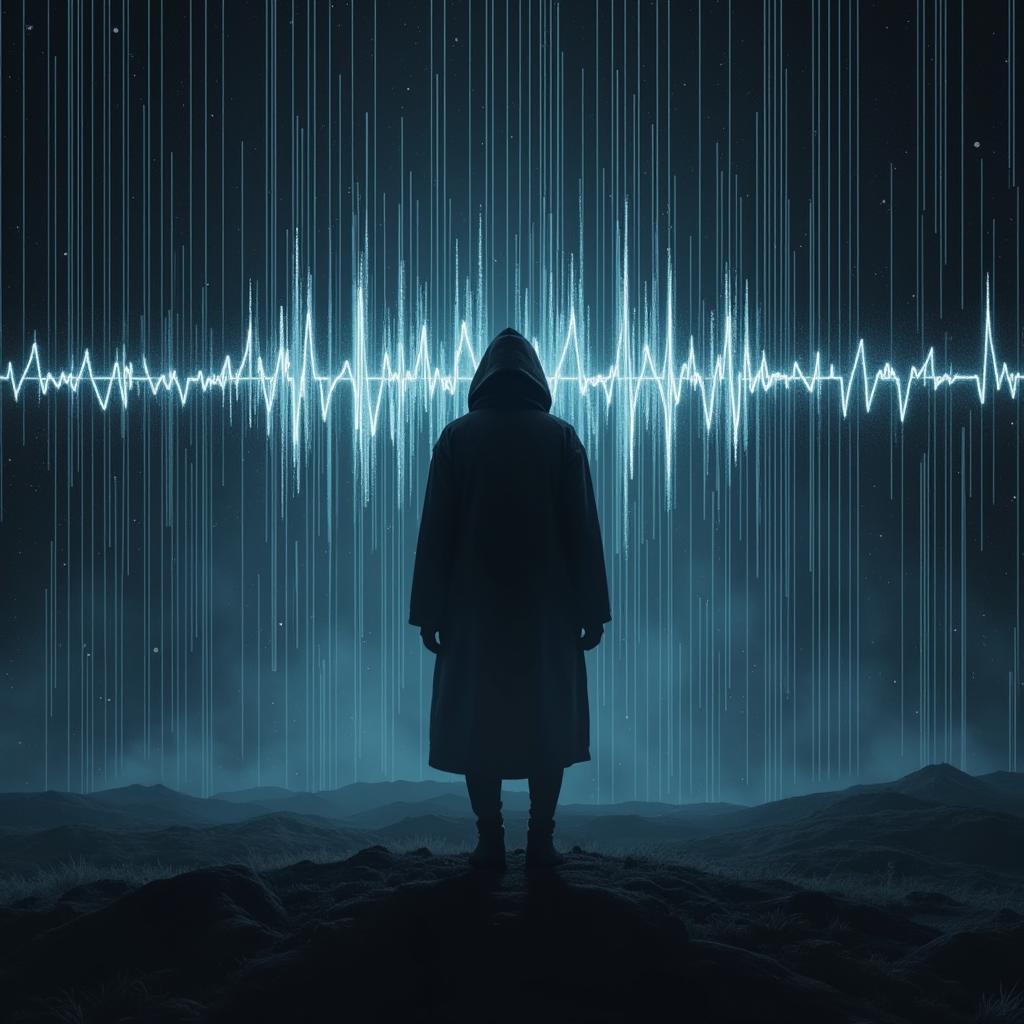The interplay between a question, research, and a hypothesis forms the bedrock of any successful investigation, especially in the realm of the paranormal. It’s a dance between curiosity, disciplined inquiry, and the formulation of testable explanations. Whether we’re exploring haunted locales, analyzing eyewitness accounts of strange creatures, or attempting to understand psychic phenomena, the “Question Research Hypothesis” trifecta guides our path.
Asking the Right Questions: The Spark of Paranormal Research
Every research endeavor, whether in the scientific or paranormal fields, begins with a question. What causes certain locations to be haunted? Why do some people seem to possess psychic abilities? What is the nature of the strange creatures reported in various cultures? These questions, fueled by curiosity and a thirst for understanding, serve as the catalyst for our journey into the unknown.
But crafting the right questions is crucial. They need to be:
- Clear and concise: Avoid ambiguity and overly broad phrasing.
- Focused and specific: Target a particular aspect of the paranormal phenomenon in question.
- Researchable: Ensure that data can be gathered and analyzed to potentially answer the question.
For instance, instead of asking “Do ghosts exist?”, a more effective research question might be “What environmental factors are commonly associated with reports of ghost sightings?”
 Environmental Factors and Ghost Sightings
Environmental Factors and Ghost Sightings
Research: The Heart of Paranormal Investigation
Once we have our questions, research becomes paramount. This involves delving into existing literature, historical accounts, eyewitness testimonies, and any available scientific data that might shed light on the phenomena in question.
Paranormal research often draws upon a multidisciplinary approach, incorporating elements of:
- History: Examining historical records for patterns or recurring themes related to the paranormal event.
- Psychology: Understanding the psychological factors that might influence perceptions and interpretations of paranormal experiences.
- Sociology: Exploring the cultural and societal influences on beliefs and narratives surrounding the paranormal.
- Physics: Investigating potential overlaps between known physical laws and observed paranormal activity.
For example, researching a supposed haunted house might involve digging into its past residents, any tragic events that occurred there, and collecting testimonials from those who claim to have experienced something unusual within its walls.
Hypothesis: A Testable Explanation
A hypothesis is a tentative explanation for an observed phenomenon. It’s an educated guess, based on research and preliminary observations, that proposes a possible relationship between variables. A strong hypothesis in paranormal research should be:
- Testable: It should be possible to design an experiment or gather data that could potentially support or refute the hypothesis.
- Falsifiable: There should be a way to prove the hypothesis wrong. If a hypothesis cannot be disproven, it falls outside the realm of scientific inquiry.
- Objective: The hypothesis should not be biased towards a predetermined outcome.
Let’s say our research question is “Does electromagnetic activity influence the frequency of ghost sightings?” A possible hypothesis could be: “If electromagnetic fields influence ghost sightings, then locations with high EMF readings will have a statistically significant higher number of reported sightings compared to locations with low EMF readings.”
 Electromagnetic Fields and Ghost Sightings
Electromagnetic Fields and Ghost Sightings
The Interconnected Nature of Question, Research, and Hypothesis
It’s important to remember that the question, research, and hypothesis are not isolated steps but rather interconnected elements of a continuous cycle. Research might lead to new questions, which then require further investigation and refined hypotheses.
Consider the following:
“While investigating the relationship between EMF and ghost sightings, researchers discover a recurring theme in eyewitness accounts: a feeling of intense cold spots in areas with high EMF. This observation prompts a new research question: Is there a correlation between temperature fluctuations and electromagnetic anomalies in locations with reported paranormal activity?”
This example illustrates how the “question research hypothesis” cycle constantly evolves, pushing the boundaries of our understanding and driving us deeper into the mysteries of the paranormal.
Conclusion: Embracing the Unknown
The quest to understand the paranormal is a journey marked by curiosity, disciplined investigation, and a willingness to consider possibilities that challenge conventional wisdom. By embracing the “question research hypothesis” framework, we equip ourselves with the tools necessary to navigate this fascinating and often perplexing terrain.
Remember, the most important tool in any paranormal investigation is a discerning and open mind. For it is through rigorous exploration and a commitment to seeking the truth that we inch closer to unraveling the enigmas of the unknown.
FAQs about Question Research Hypothesis
1. What is the difference between a research question and a hypothesis?
A research question is a broad inquiry about a topic, while a hypothesis is a specific, testable prediction about the relationship between variables. Think of the research question as the “what” you are investigating and the hypothesis as the “why” or “how” you believe it might work. To delve deeper into this distinction, you can explore our dedicated article on what is the difference between hypothesis and research question.
2. Can a hypothesis be proven true?
While a hypothesis can be supported by evidence, it can never be definitively proven true. There’s always a possibility that future research or alternative explanations might challenge the existing understanding. Science, and by extension, credible paranormal research, operate on the principle of continually refining and expanding knowledge rather than seeking absolute proof.
3. How do I choose the right research methods for my paranormal investigation?
The choice of research methods depends on the nature of your research question, the type of data you need to gather, and the resources available. Common methods used in paranormal research include interviews, surveys, observations, experiments, and the analysis of existing data.
4. What are some common pitfalls to avoid when formulating a hypothesis?
Avoid overly broad or vague hypotheses that are difficult to test. Ensure your hypothesis is falsifiable, meaning there’s a way to potentially prove it wrong. Additionally, steer clear of biased hypotheses that favor a predetermined outcome.
5. How can I ensure my paranormal research is credible and objective?
Maintain a critical and skeptical mindset throughout the research process. Be open to alternative explanations and avoid cherry-picking evidence to support your hypothesis. Document your findings meticulously and be transparent about your methods and limitations.
Need More Guidance on Your Paranormal Research Journey?
Explore these additional resources on our website:
- Research question and hypothesis difference: Delve deeper into the nuances that set research questions and hypotheses apart.
- Research question versus hypothesis: A comparative analysis to solidify your understanding of these crucial research components.
- Difference between a research question and a hypothesis: Uncover the key distinctions through clear explanations and illustrative examples.
Ready to Explore Further?
If you need assistance with your paranormal research or have questions about specific phenomena, don’t hesitate to reach out. Contact us at:
Phone: 0904826292
Email: research@gmail.com
Or visit us at:
Paranormal Research Center
No. 31, Alley 142/7, P. Phú Viên
Bồ Đề, Long Biên, Hà Nội, Việt Nam
Our team of dedicated researchers is available 24/7 to assist you on your quest for knowledge and understanding.